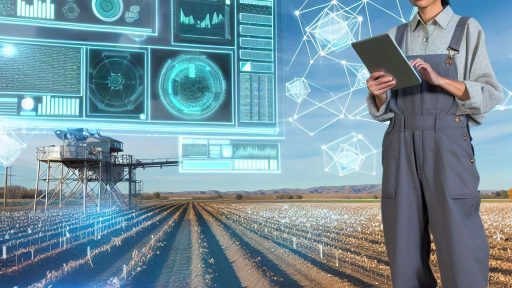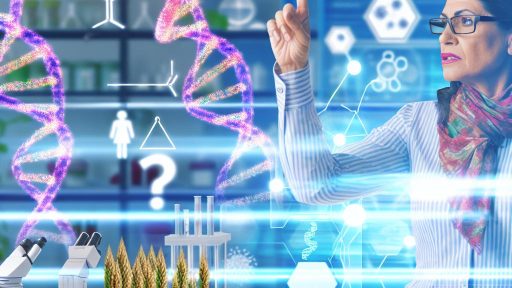Introduction to Machine Learning in Agriculture
Machine learning revolutionizes the agricultural sector in numerous ways.
It offers innovative solutions to longstanding challenges in farming.
Through data analysis, farmers can make informed decisions.
This technology enhances productivity and sustainability in agriculture.
Data-Driven Decision Making
Farmers now utilize data for better crop management.
Machine learning algorithms analyze weather patterns and soil conditions.
These insights help in predicting yields and planning accordingly.
In addition, machine learning identifies the optimal planting times.
Precision Agriculture
Precision agriculture employs technology to maximize efficiency.
Farmers use sensors and drones to monitor fields closely.
This approach reduces resource waste and enhances yield quality.
Moreover, machine learning facilitates real-time data analysis.
Pest and Disease Management
Machine learning plays a crucial role in pest and disease management.
By analyzing historical data, it predicts outbreaks effectively.
Farmers can respond swiftly, minimizing damage and loss.
Transform Your Agribusiness
Unlock your farm's potential with expert advice tailored to your needs. Get actionable steps that drive real results.
Get StartedThis proactive approach allows for targeted pesticide application.
Enhancing Supply Chain Efficiency
Machine learning streamlines the agricultural supply chain.
It optimizes inventory management and logistics operations.
Farmers can forecast demand accurately, reducing spoilage.
Furthermore, it facilitates better market pricing strategies.
Precision Agriculture: An Overview of Machine Learning Techniques
What is Precision Agriculture?
Precision agriculture employs technology to enhance farm productivity.
This approach uses data analysis to optimize farming practices.
It allows farmers to make more informed decisions based on data insights.
Importance of Machine Learning in Farming
Machine learning revolutionizes traditional farming with advanced analytics.
It enables precise monitoring of crop health and yields.
Farmers gain insights into weather patterns, soil conditions, and pests.
Consequently, they can predict outcomes and mitigate risks effectively.
Machine Learning Techniques Commonly Used
Various machine learning techniques support precision agriculture.
- Data Mining: It extracts useful patterns from large datasets.
- Neural Networks: These models simulate human brain processes.
- Decision Trees: They help in making decisions based on varying conditions.
- Support Vector Machines: This technique classifies data into different categories.
Application of Machine Learning in Crop Management
Machine learning assists in monitoring crop health in real-time.
Farmers can identify disease signs early and take action promptly.
Additionally, it helps optimize irrigation by analyzing moisture levels.
As a result, resources like water are utilized more effectively.
Enhancing Yield Predictions
Accurate yield predictions are essential for sustainable farming.
Machine learning can analyze historical yield data and environmental factors.
This analysis improves the precision of yield forecasts significantly.
Farmers then adjust their strategies based on these predictions.
Challenges in Implementing Machine Learning
Despite its benefits, implementing machine learning presents challenges.
Data collection and management can be resource-intensive.
Farmers also need adequate training to utilize these technologies.
Showcase Your Farming Business
Publish your professional farming services profile on our blog for a one-time fee of $200 and reach a dedicated audience of farmers and agribusiness owners.
Publish Your ProfileMoreover, costs associated with advanced technology can be high.
Future Prospects of Machine Learning in Agriculture
The future of machine learning in agriculture appears promising.
Continued advancements will likely reduce costs and improve accessibility.
As technology evolves, more farmers will adopt these tools.
This shift will lead to more sustainable and efficient agricultural practices.
Crop Health Monitoring Using ML Algorithms
Introduction to Crop Health Monitoring
Farmers face numerous challenges in maintaining crop health.
Machine learning (ML) provides innovative solutions to these issues.
This technology enhances agricultural practices significantly.
Importance of Crop Health Monitoring
Monitoring crop health is essential for maximizing yield.
It helps in early detection of diseases and pests.
Additionally, it optimizes input usage like water and fertilizers.
Techniques for Monitoring Crop Health
Farmers utilize various techniques powered by ML algorithms.
Remote sensing plays a crucial role in data collection.
Drone technology enables aerial surveys and imaging.
Moreover, sensors can provide real-time soil and plant health data.
Data Analysis with Machine Learning
ML algorithms analyze large datasets to identify patterns.
These patterns can indicate plant stress or nutrient deficiencies.
Moreover, supervised learning models can predict crop yields.
Common Algorithms Used
Several algorithms are popular in crop health monitoring.
Random forests are useful for classification tasks.
Convolutional neural networks effectively analyze images.
Support vector machines can differentiate between healthy and unhealthy crops.
Case Studies on Successful Implementation
Agricultural companies report significant improvements using ML.
The GreenPath Initiative saw a 20% increase in crop yields.
Similarly, FarmTech Solutions reduced pesticide use by 30%.
Challenges and Solutions
Implementing machine learning has its challenges.
Data quality and quantity are crucial for accurate analysis.
Farmers often lack the resources for effective implementation.
Collaboration with tech companies can provide necessary support.
Future Trends in Crop Health Monitoring
The future of crop health monitoring looks promising.
Integration of AI with precision agriculture will evolve further.
As technology advances, costs will likely decrease.
Ultimately, this will make ML tools accessible to more farmers.
Explore Further: Integrating Automated Machinery Into Traditional Farming
Predictive Analytics for Crop Yield Forecasting
Importance of Predictive Analytics
Predictive analytics provides farmers critical insights for crop management.
Farmers can make informed decisions based on data trends and patterns.
This technology enhances productivity while minimizing risks.
Data Collection Methods
Farmers can use various methods to collect data.
Soil sensors provide real-time information about soil moisture levels.
Weather stations give forecasts that help in planning planting times.
Showcase Your Farming Business
Publish your professional farming services profile on our blog for a one-time fee of $200 and reach a dedicated audience of farmers and agribusiness owners.
Publish Your ProfileDrones equipped with cameras can monitor crop health from above.
Machine Learning Algorithms
Machine learning algorithms analyze agricultural data effectively.
Regression models predict expected yields based on historical data.
Classification algorithms can categorize crops based on growth conditions.
Clustering algorithms help identify patterns in large datasets.
Integration with IoT Devices
IoT devices facilitate seamless data collection on farms.
Connected devices relay crucial information in real-time.
Farmers can act quickly based on the insights generated.
This integration supports precise and timely decision-making.
Case Studies
Many farms have successfully implemented predictive analytics.
For instance, GreenField Farms improved yield predictions significantly.
Furthermore, SunnyVale Orchards used algorithms for pest management.
These examples highlight the benefits of adopting advanced technologies.
Future of Predictive Analytics
The future of farming lies in advanced predictive analytics.
New technologies will continue to enhance data accuracy and insights.
Farmers will rely more on data-driven strategies in their operations.
This shift promises increased efficiency and sustainability in agriculture.
Uncover the Details: Benefits of Controlled Environment Agriculture for Sustainable Farming
Soil Management and Analysis through Machine Learning
Importance of Soil Data
Soil health directly impacts crop yield and quality.
Understanding soil properties helps farmers make informed decisions.
Data on nutrients, pH levels, and moisture content is crucial.
Moreover, soil data can guide sustainable farming practices.
Machine Learning Techniques
Machine learning algorithms analyze vast amounts of soil data.
These algorithms identify patterns that humans might overlook.
For instance, regression models predict how soil changes affect crops.
Additionally, classification techniques categorize soil types effectively.
Applications in Precision Agriculture
Farmers use machine learning to create customized soil management plans.
This approach maximizes nutrient use efficiency.
It also minimizes waste and environmental impact.
Yield prediction models help farmers plan their planting strategies.
Case Studies and Success Stories
Many farms have successfully adopted machine learning technologies.
GreenField Farms increased their yields by analyzing soil data.
They employed machine learning to optimize fertilizer application.
Similarly, EcoAgri Solutions implemented soil analysis drones.
The results improved their overall soil health significantly.
Challenges and Future Directions
Despite advancements, challenges remain in soil data collection.
Standardizing data formats across platforms will help overcome this.
Furthermore, enhancing accessibility to machine learning tools is essential.
Investment in research will drive innovation in soil management.
Collaboration among farmers, scientists, and tech companies is vital.
Showcase Your Farming Business
Publish your professional farming services profile on our blog for a one-time fee of $200 and reach a dedicated audience of farmers and agribusiness owners.
Publish Your ProfileSee Related Content: AI-Driven Crop Monitoring Techniques

Automated Irrigation Systems Powered by Machine Learning
Introduction to Automated Irrigation
Automated irrigation systems enhance farming productivity significantly.
They utilize technology to optimize water usage on farms.
Additionally, these systems help conserve valuable water resources.
Machine Learning in Irrigation
Machine learning algorithms analyze vast amounts of agricultural data.
These algorithms improve decision-making for irrigation schedules.
Consequently, they help farmers apply the right amount of water at optimal times.
Benefits of Machine Learning-Driven Irrigation
- Increased crop yields due to precise watering.
- Significant reductions in water waste.
- Enhanced sustainability through efficient resource management.
Real-World Examples of Automation
Many farms worldwide have adopted this innovative approach.
For instance, Green Fields Farm in California uses a machine learning system.
This system monitors soil moisture and weather data for optimal irrigation.
Challenges and Considerations
Implementing automated systems requires upfront investment and training.
Farmers must also consider system compatibility with existing infrastructure.
Moreover, ongoing maintenance and software updates may be necessary.
The Future of Smart Irrigation
The future looks promising for machine learning in agriculture.
As technology advances, more farmers will likely adopt automated solutions.
This will further enhance irrigation efficiency and sustainability.
You Might Also Like: Implementing Automated Machinery In Organic Farming
Pest and Disease Detection with Image Recognition Technology
Overview of Image Recognition in Agriculture
Image recognition technology plays a significant role in modern farming.
Farmers increasingly use it to identify pests and diseases early.
This technology leverages machine learning algorithms for accurate analysis.
Furthermore, it can analyze images captured by drones and smartphones.
Benefits of Early Detection
Early detection of pests and diseases enhances crop management practices.
It allows farmers to respond swiftly to potential threats.
This can result in reduced crop losses and increased yields.
Moreover, timely interventions can lower pesticide usage significantly.
How the Technology Works
Machine learning algorithms train on labeled datasets of pest and disease images.
These models learn to recognize key features in images for identification.
Once trained, they can analyze new images with remarkable speed.
Farmers can receive alerts about potential issues directly on their devices.
Real-World Applications
Several companies, like AgriTech Innovations, utilize this technology effectively.
They provide solutions for precision agriculture that are easy to adopt.
In India, many farmers have reported improved crop health using these tools.
Additionally, organizations collaborate to enhance the databases available.
Challenges and Considerations
Despite its effectiveness, challenges remain in image recognition technology.
Variability in environmental conditions can affect image quality.
Also, diverse species may complicate the recognition process.
Consequently, continuous updates to the model are necessary for accuracy.
The Future of Pest and Disease Detection
As technology evolves, image recognition will become more sophisticated.
Future advancements may include real-time monitoring using IoT devices.
Integrating big data analytics can further improve decision-making for farmers.
Showcase Your Farming Business
Publish your professional farming services profile on our blog for a one-time fee of $200 and reach a dedicated audience of farmers and agribusiness owners.
Publish Your ProfileUltimately, this technology promises sustainable agricultural practices.
Supply Chain Optimization and Market Forecasting Using ML Models
Enhanced Supply Chain Efficiency
Machine learning models optimize supply chain processes in agriculture.
These models analyze data from multiple sources for better decision-making.
Farmers can predict crop yields with remarkable accuracy.
This accuracy allows for proactive planning and resource management.
Additionally, real-time data tracking enhances logistics and distribution.
This leads to reduced waste and lower costs for farmers.
Consequently, profitability increases for agricultural businesses.
Market Forecasting Capabilities
Market forecasting is crucial for agricultural success.
Machine learning algorithms analyze market trends and consumer behavior.
This analysis aids farmers in identifying optimal planting times.
It also helps in deciding which crops to prioritize each season.
Farmers can adjust their strategies based on predictions.
As a result, they can maximize profits while minimizing losses.
Furthermore, accurate forecasting fosters better collaboration with distributors.
Data-Driven Decision Making
The implementation of machine learning fosters a data-driven culture.
Farmers increasingly rely on analytics for their operational decisions.
This reliance enhances their ability to respond to market changes.
Furthermore, data-driven insights inform resource allocation efficiently.
As analytics evolve, farmers can leverage advanced forecasting techniques.
Staying ahead of trends ensures a competitive edge in the market.
Case Studies and Real-World Applications
Several farms have successfully implemented machine learning technologies.
Green Oak Farms used predictive analytics to improve their crop selections.
They reported a 20% increase in profits after adopting this strategy.
GreenScape Innovations enhanced their supply chain efficiency significantly.
They reduced waste and improved delivery speeds through real-time data insights.
These examples highlight the power of AI in agriculture.
Moreover, they inspire wider adoption throughout the industry.
Additional Resources
Artificial Intelligence | NIFA
Wonsuk Lee – UF/IFAS Agricultural and Biological Engineering …




